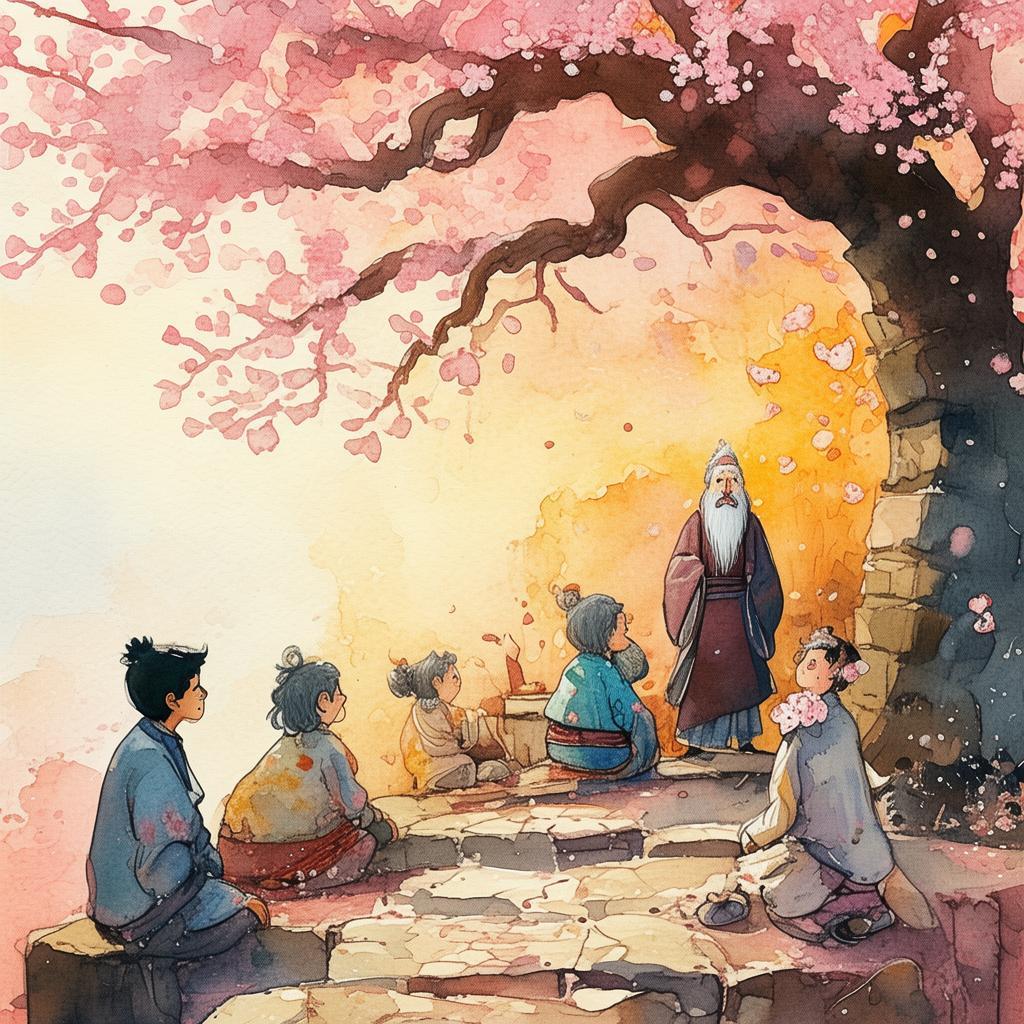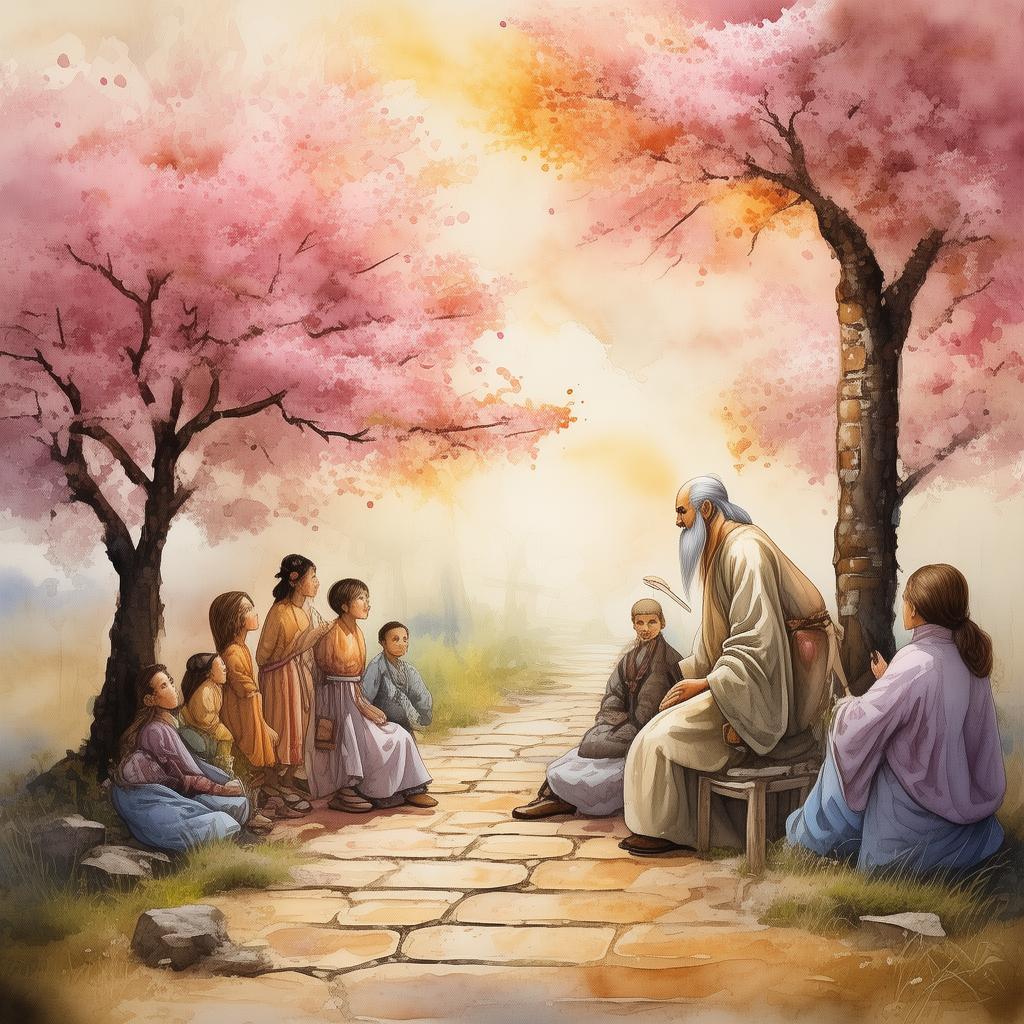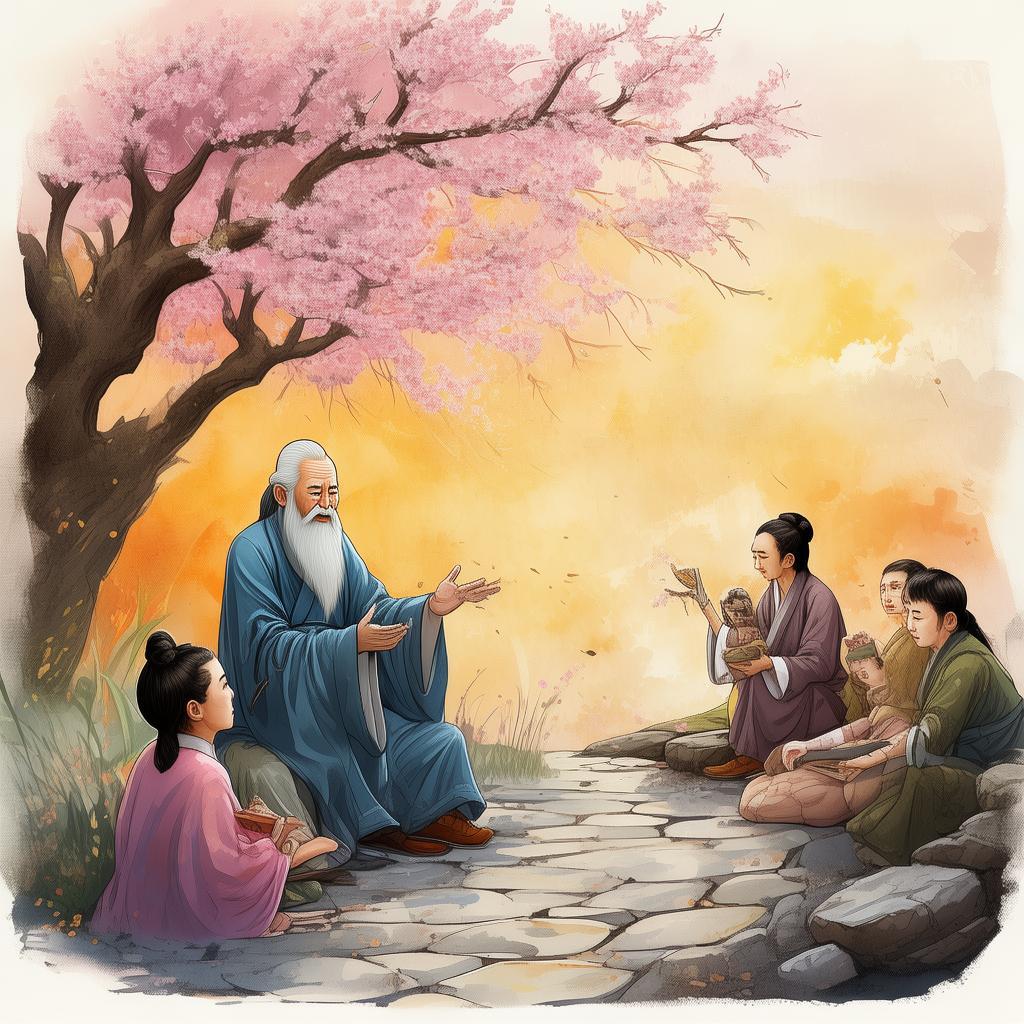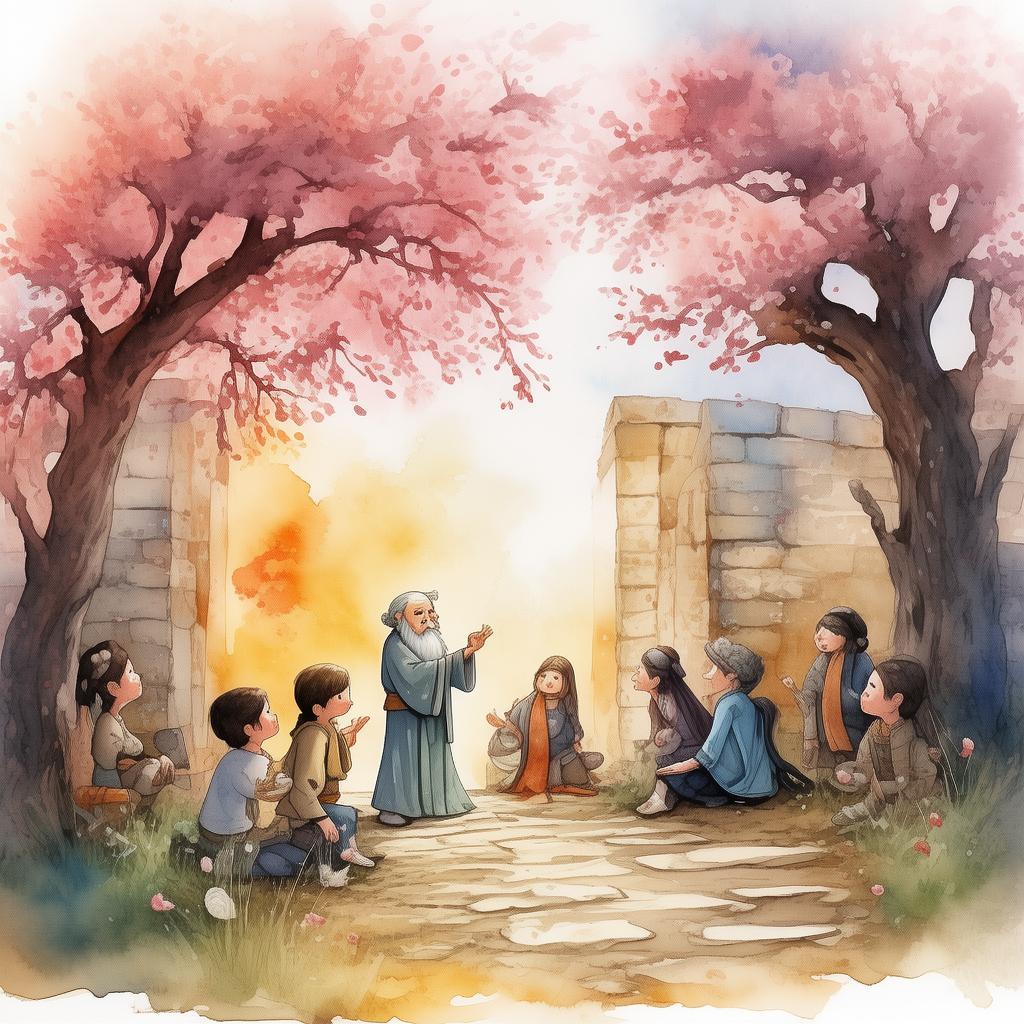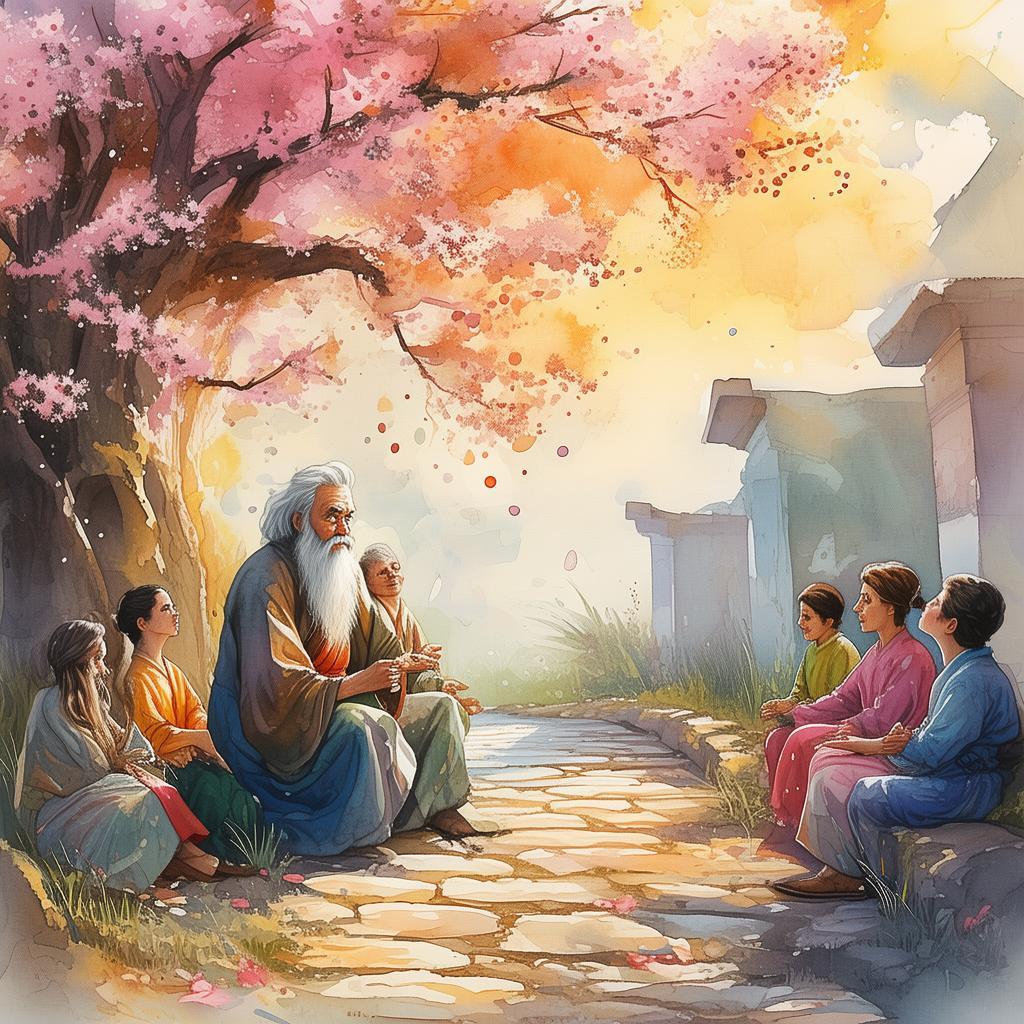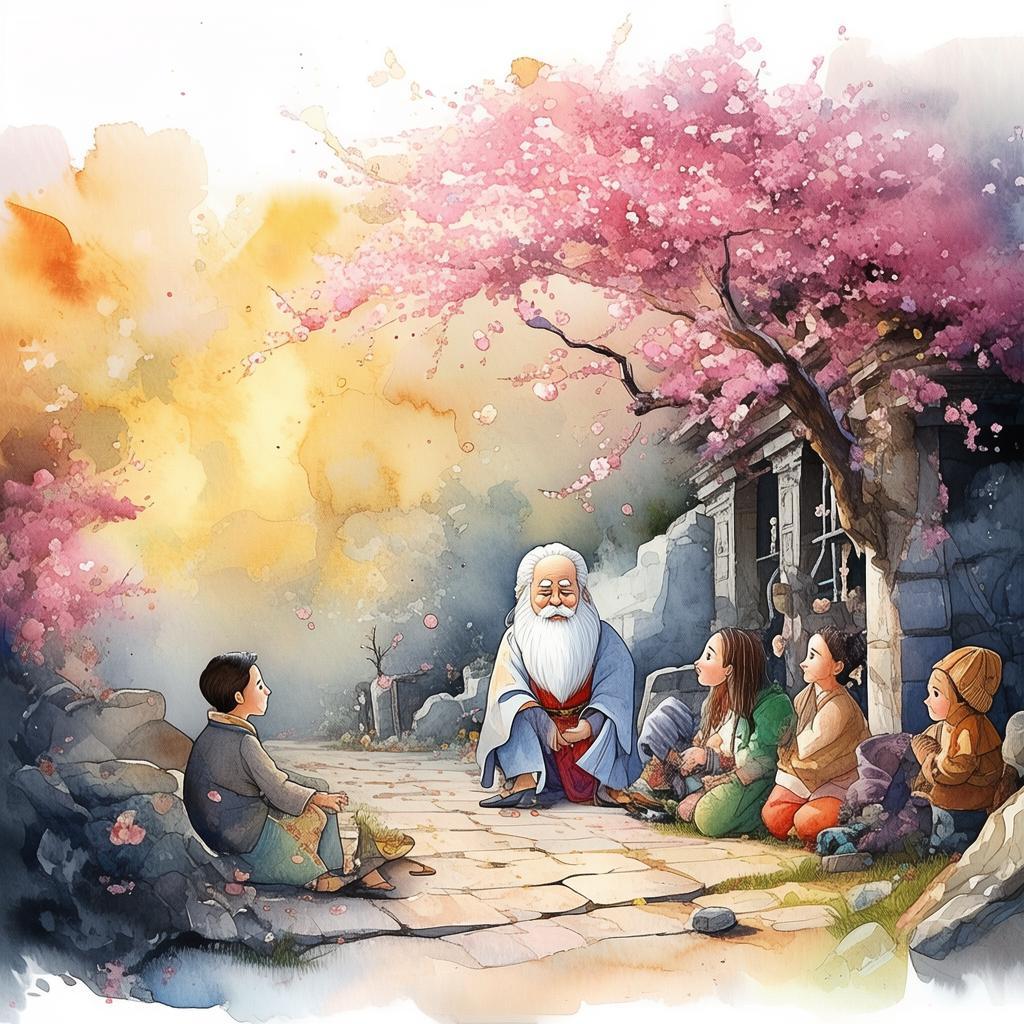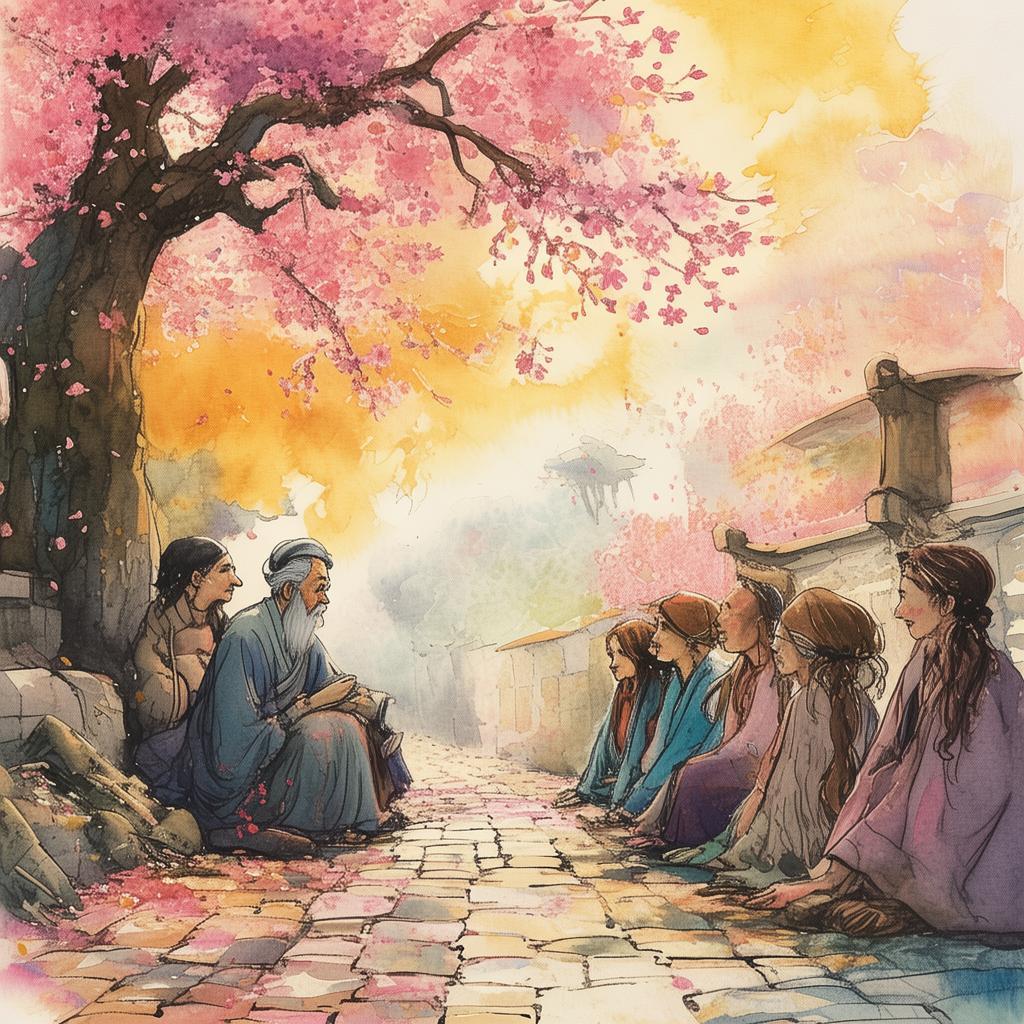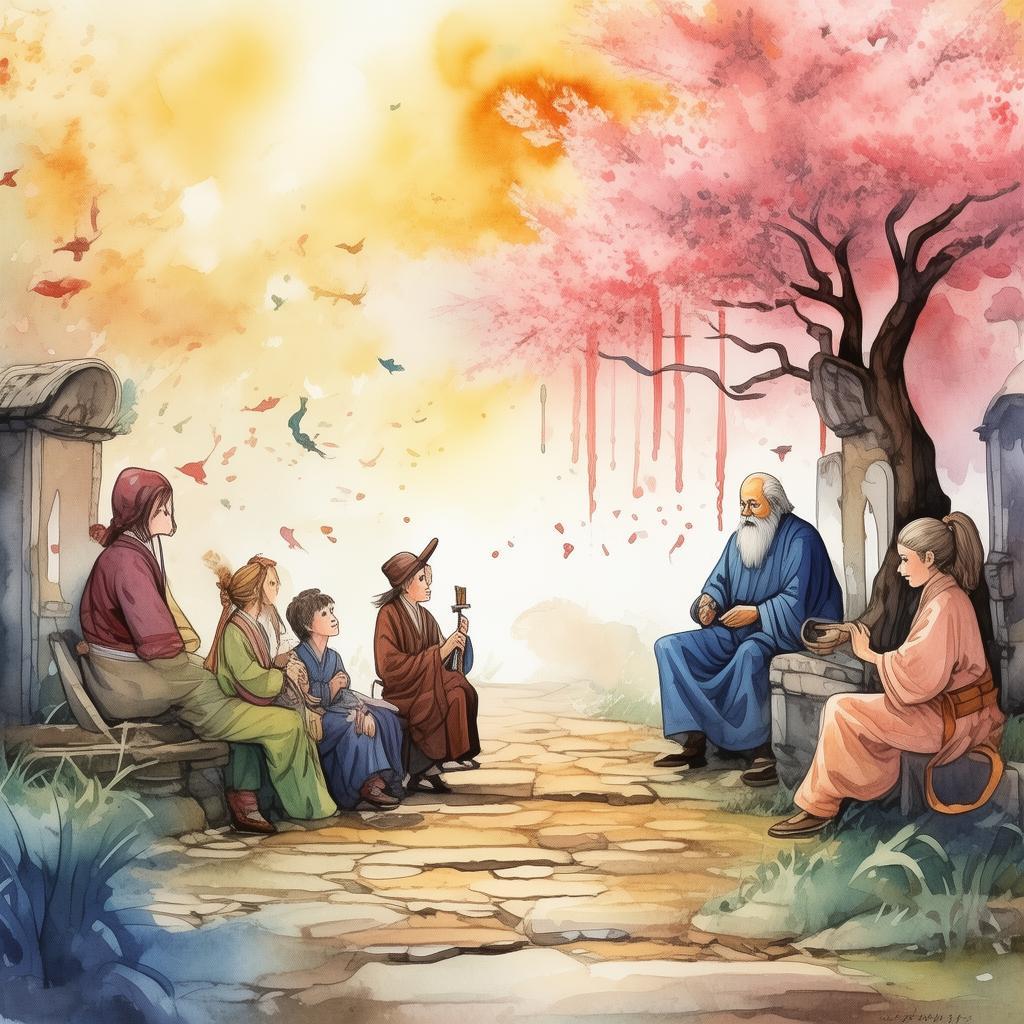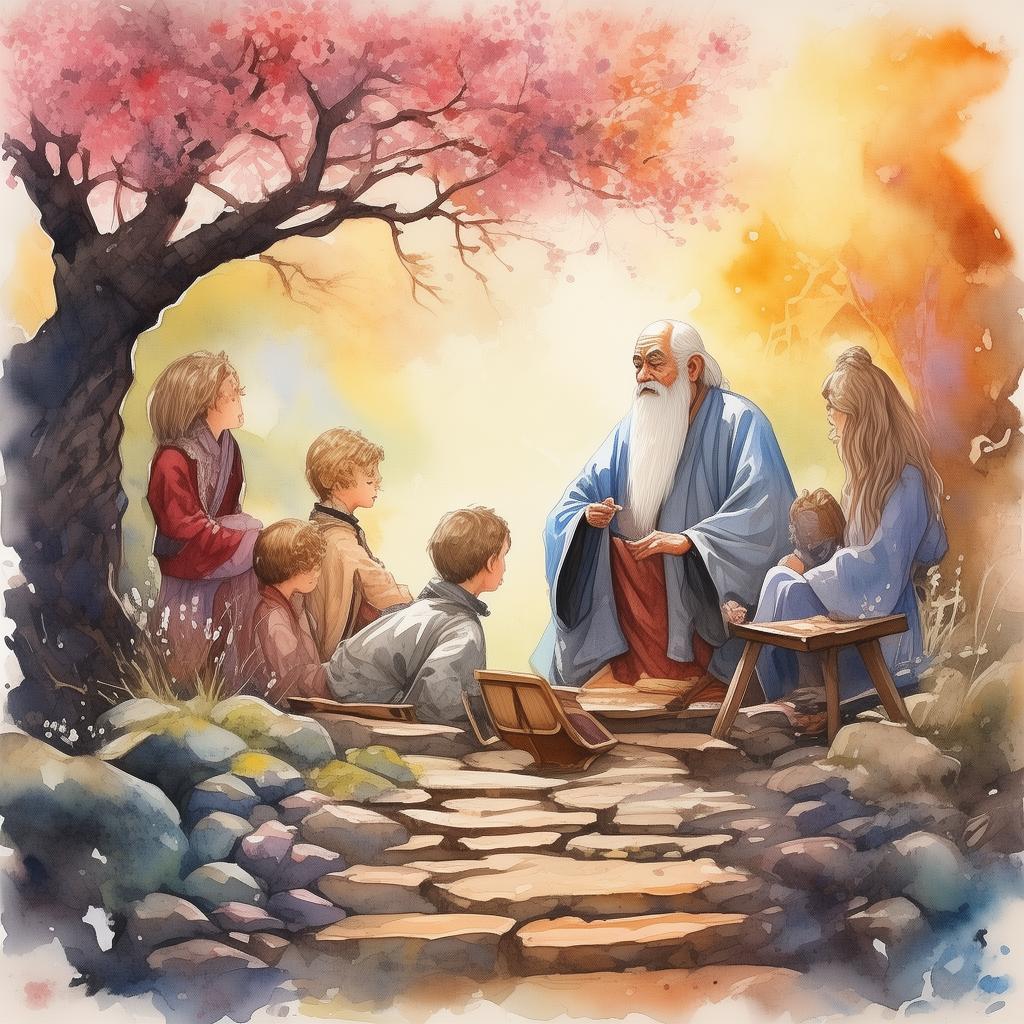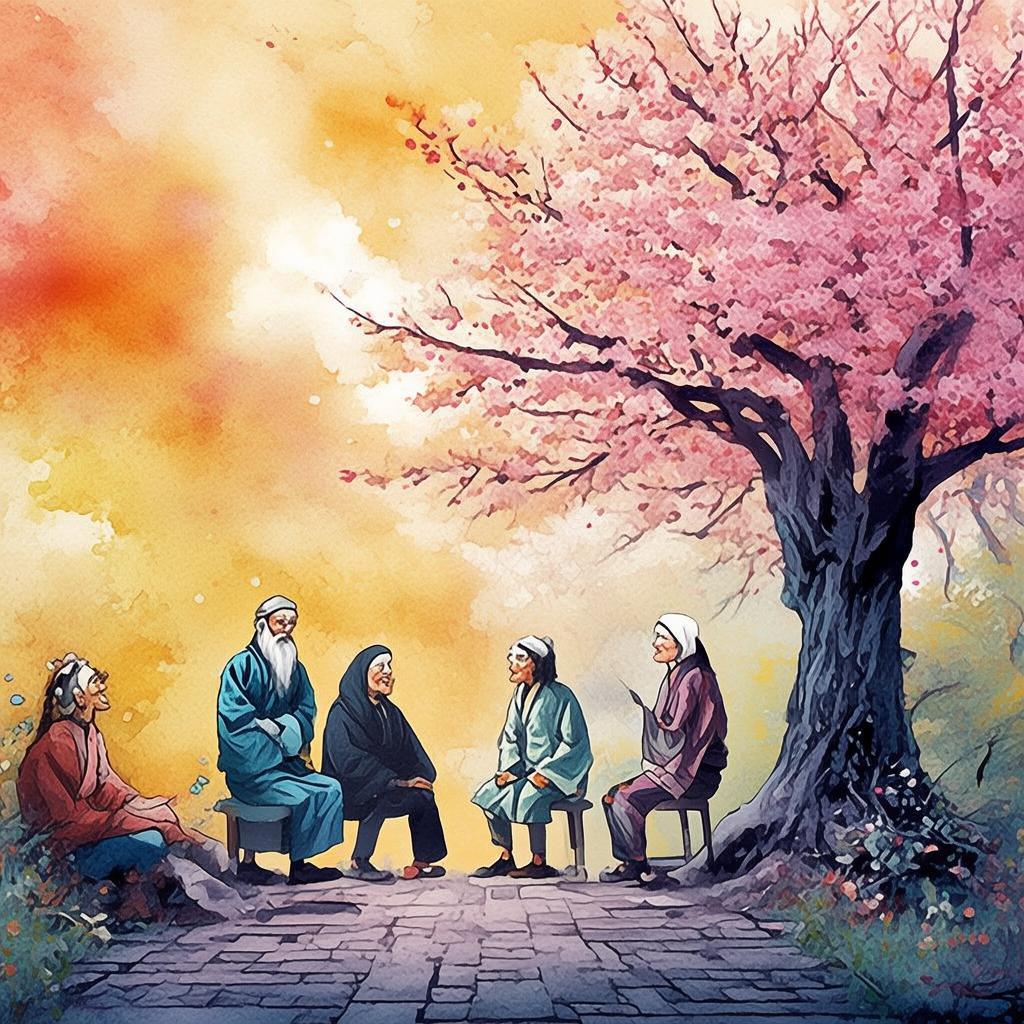The Sorrow of the Bamboo Grove
In the tranquil countryside of ancient China, there was a young farmer named Bing. Bing was known for his dedication and hard work, as well as his quiet, contemplative nature. He spent his days cultivating the land and tending to his bamboo grove, which was the source of his livelihood and a place of solitude.
One crisp autumn morning, as the sun began to climb high in the sky, Bing took his bamboo mat and his hoe to the grove. The bamboo, standing tall and proud, rustled gently in the soft breeze. It was during this time that Bing noticed an old, withered scroll nestled between two thick bamboo stalks. Intrigued, he carefully pulled it out, his fingers brushing against the delicate, age-old paper.
As Bing unrolled the scroll, he found himself face to face with a verse he had never seen before: "The wise do not worry over what they cannot change; they change what they cannot change." The words seemed to resonate deeply within him, as if they were meant for him at this very moment.
Curious, Bing set out to understand the meaning behind the proverb. He knew that wisdom was something to be cherished, but he was unsure how to apply it to his life. With the scroll in hand, he sought out the sage of the village, an old man whose knowledge was as vast as the bamboo grove itself.
The sage listened intently to Bing's questions and, after a moment of deep contemplation, began to speak. "The bamboo you tend to has a life cycle that we often overlook. It grows strong and tall, only to be cut down, seemingly to be lost forever. But this is not the end; it is a rebirth. The same can be said for the wisdom in the proverb you have found."
The sage continued, "Life is full of things we cannot control, much like the bamboo that we prune to make it stronger. Worrying over them is a waste of our time and energy. Instead, we should focus on changing the things within our control, much like we prune the bamboo to encourage new growth."
Bing nodded, understanding the sage's words but feeling the weight of his own sorrows. His father had died suddenly, leaving him with the responsibility of the farm and his younger siblings. The grief of losing his parent and the pressure of supporting his family weighed heavily on his young shoulders.

The sage, seeing Bing's pain, said, "Bing, the wisdom you seek is not in avoiding sorrow, but in facing it with a clear mind. Like the bamboo, your life is in a state of flux, and your sorrow is part of that flux. You must learn to prune it, to shape it, to make it something that can be used for good."
Inspired by the sage's words, Bing began to apply the wisdom of the bamboo grove to his own life. He realized that while he could not change the past or the circumstances that brought him sorrow, he could change his attitude towards them. He became more patient with his younger siblings, more mindful of the land, and more determined to create a better future for himself and his family.
The bamboo grove flourished under Bing's care, and as the seasons changed, so too did Bing. The wisdom of the scroll became a guiding light in his life, a reminder that he had the power to shape his future through his actions and mindset.
One year, as Bing was celebrating the harvest, the village was struck by a sudden drought. The fields dried up, and the crops withered away. Bing faced this new challenge with the same resilience he had shown in the face of his sorrow. He and the villagers worked together to dig wells and build water channels, drawing upon the strength of their community.
The wisdom from the bamboo grove was tested, and Bing's determination was unwavering. He reminded the villagers of the sage's words: "The wise do not worry over what they cannot change; they change what they cannot change." With this in mind, they focused their efforts on what they could control and sought help from neighboring villages and from the local authorities.
Through their collective efforts, the drought was eventually broken, and the land was replenished. The villagers were grateful, and Bing's name became synonymous with resilience and wisdom. The proverb from the scroll had become more than just words; it was a way of life, a philosophy that had been passed down through generations.
In the end, Bing's story was a testament to the power of wisdom, resilience, and the profound connection between the ancient proverbs of China and the lives of those who sought to live by them. The sorrow of the bamboo grove had transformed into a melody of timeless wisdom, echoing through the ages.
✨ Original Statement ✨
All articles published on this website (including but not limited to text, images, videos, and other content) are original or authorized for reposting and are protected by relevant laws. Without the explicit written permission of this website, no individual or organization may copy, modify, repost, or use the content for commercial purposes.
If you need to quote or cooperate, please contact this site for authorization. We reserve the right to pursue legal responsibility for any unauthorized use.
Hereby declared.
